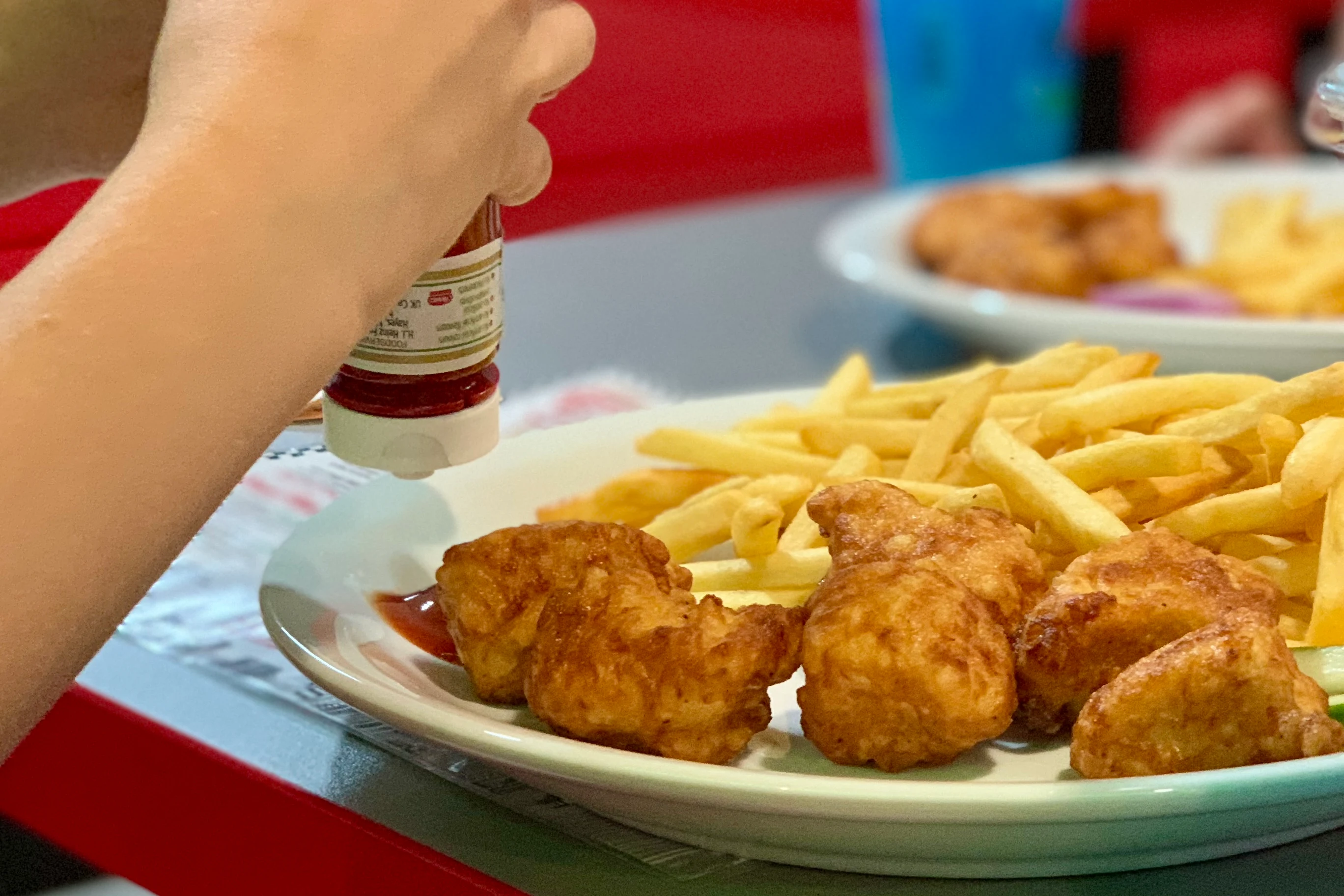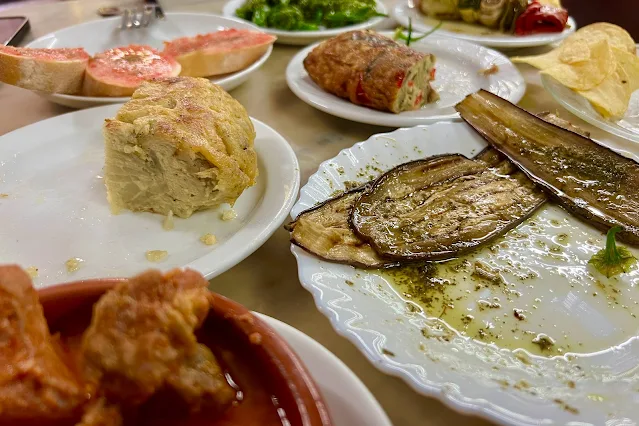Are your children fussy eaters? I wouldn’t say my children are fussy, it's just that they only eat particular foods and they change their mind very regularly about what they like to eat. It’s a bit of a challenge and it can be frustrating. If your children are reluctant eaters or they are often fussy or picky about their food then you are not alone. I found it easiest to offer the same 'safe' foods every day, but one day I tried something different and it changed my thinking. Read on to find the 3 ways I encourage my children to eat a wider variety of foods.
 |
| I used to stick to "safe" food I knew my children would eat, but then I tried a different approach for picky eaters |
My Experience With Picky Eaters
At dinner times I would have a handful of meals that I cooked on rotation because at least one of my three children would eat them. Although the meal times where all three ate the food I gave them without complaint were pretty exciting I eat dinner with my children and I was bored of eating the same food all the time.
So I decided one afternoon to make a chilli con carne. I have a recipe passed down by my Dad and it’s a great dish. I reduced the chilli level slightly but kept it full of flavour. I reasoned that my children would eat the white rice I served with it and I could freeze leftovers. There weren’t any leftovers: my children loved it. "That's strange" I thought and I assumed it was a one off, but the next time I made chilli they ate it all again.
Now don’t start thinking that suddenly my children would eat and try anything. I still regularly make food that they turn their nose up at, but the chilli made me realise there are a lot of foods out there and while I might not understand why they like some foods and not others it is worth trying new things. My eldest for instance has decided she doesn’t like tomato based sauces, but she likes my chilli con carne. Um ok. Obviously there is a balance of flavours so it becomes a dish with a tomato ingredient rather than tomato based sauce for her but it’s confusing for me. Two out of three of my children like dahl. They all like various kinds of beans. They like duck more than chicken. They often refuse to eat roast potatoes, but will normally eat new potatoes tossed in oil and cooked in our air fryer or potato wedges. They don't seem to follow the rules of what children normally eat, but the more foods they try the more we find they like.
3 Ways To Encourage Reluctant Eaters to Eat
I can't predict what foods my children will and wont like, but I have discovered that they will eat a varied diet when given the opportunity. How do I encourage my children to try new foods though?
Get Them Involved In Cooking
My eldest is now 11 and she has started to enjoy cooking (as long as it’s not at a time she is allowed to be playing Roblox). She kept asking to cook her siblings dinner so we look through cookbooks together and adapt the meals to something she likes the sound of. My 6 year old is now asking to help out too.
I believe that being able to cook is an essential life skill and I’m keen for my children to experiment in the kitchen, but there is another advantage. My children are more likely to eat food if they have made it themselves or if their sister has made it than if I have (much like they are more likely to try food if it has been delivered in a takeaway container).
Through cooking meals it gives them some control over the ingredients that go into their food and it helps them to explore what they like to eat. I encourage them to smell spices and explore flavours, adapting recipes to their taste. It’s the same thing I naturally do when I cook and I never include ingredients that I don’t personally like. Minor adjustments to the dishes can make them more appealing and the simple act of giving my children control over their meals helps too.
 |
| Cooking with children is a great way to help them explore foods |
Add a little spice with Spice Kitchen
It can be hard to encourage your children to cook with herbs and spices if you aren't familiar with them yourself. Often "spice" is synonymous with "heat" which many children don't like, but really it should be about flavour. Yes there are spices that are hot (like chilli) but many others don't have heat or (like ginger) only taste hot when concentrated. Herbs are often overused and overpower a dish, but when used in a lesser amount will complement it.
We were gifted the Baby Spice Kitchen tin from Spice Kitchen which has 7 different mild blends (Indian, Moroccan, Mexican, Cajun, Caribbean, Gingerbread and Italian). Although the tin is designed for adding more flavour to a Baby Led Weaning journey it is a great way to introduce children to cooking with herbs and spices. Cooking with the difference blends can show children just how many different flavours are out there and which they like. I started off by encouraging them to smell each one and then we tried adding them to some dishes. The set came with a little recipe book which gave us some cooking ideas. I love the concept of these Spice Kitchen tins, but some of the more delicate blends get a bit overpowered by the stronger ones and seem to take on some of the smell. It's an easy way to explore new flavours though.
 |
| This Spice Kitchen Kit makes it easy to explore mild spices with your children |
Help Yourself
Realistically my children don't have the time or inclination to cook for themselves every day so I do the majority of the cooking. Often when I serve food, especially if introducing something new, I place serving dishes in the middle of the table and let everyone help themselves (with age appropriate help). My children can choose what they want and how much. There is absolutely no pressure to try everything, but often they will get curious if my partner and I are eating something and want to try a small bit.
I praise my children if they decide to try something they wouldn't normally eat, but it is in recognition of the trying, not for eating. I never praise my children for eating all their food as it's important they recognise their internal cues to stop eating. The only time I get annoyed is when they are intentionally messing about with food other people could be eating when they never planned to eat, and that's only once they are passed the baby and toddler stage where they explore food through play.
I have found one of the biggest impacts on my children's diet after the toddler age is school meals. When I sit down to eat (having cooked) I know what it is going to taste like, my children don't. They can be offered the same food at home and school eg broccoli, and due to how it is cooked it can taste completely different. If the school version isn't very nice they unsurprisingly start to refuse the food at home. This is made worse because schools put pressure on children to eat food eg they have to ask permission to turn their plates round and eat pudding. If they haven't eaten much they are encouraged to eat more of their main. Personally I think it is really tough that we expect young children to focus on their main meal when a cake, biscuit or even ice cream is staring them in the face.
At home many children want to regain some of the control that they don't have at school, or even control that they don't have over much of their home life, and one way they can do this is refusing food. I don’t make it a big deal if they don’t fancy a food. It’s often a case of them not being in the mood rather than them not liking it and they might want it next time it's offered. If they are told “oh you don’t like mushrooms” you are reinforcing that thought in their head. Saying "oh you don't fancy mushrooms today? Maybe next time" leaves it more open. There are at least a couple of meal times a week where one of my children initially says they don't want something and then part way through the meal they decide they do. Having the food in the middle of the table and being able to help themselves allows them to do this without it being a big deal.
 |
| When food is presented in a no pressure way where children can help themselves it gives them control and encourages them to try new foods |
Meal Variations
When we are having a family dinner I refuse to make multiple meals. It’s too expensive, too time consuming and too much of a hassle. However I do serve variations of the same meal to adjust for current preferences. For instance for a while my daughters didn’t like cooked carrots (my eldest has recently started eating them again, but my middle daughter still doesn’t). So if we are having carrots as the vegetable I will leave some of them raw and cook the rest. The same with mushrooms and peppers. In fact there are several vegetables my children will happily eat raw but avoid when cooked. It's normal for children to go through a stage where they avoid slimy foods. It's no hassle for me to leave some veg uncooked and the raw veg is more nutritious generally anyway.
When I cook meals with onions in I leave them quite chunky so they can be picked out. Of course you can go the other way and blend them in, but I personally prefer not to sneak vegetables into their diet. Plus if they are in a particularly “fussy” mood children are good at finding teeny tiny pieces and refusing to eat it all so picking larger chunks out is easier. Likewise if cooking a roast dinner it’s no big hassle to leave some potatoes as boiled rather than roasting them all or to pop a couple of jacket potatoes in the oven.
Before cooking I tend to discuss what I’m going to be cooking with my children and give them a choice about the variations. Again this helps give them some choice and it prevents me cooking a meal they are totally going to refuse. Although ultimately if they refuse to eat anything we always have cereal available.
I appreciate there are extreme cases where children eat a very limited selection of foods and while my tips can help most parents (and I have witnessed this first hand) there is a point where you need to speak to your GP or Health Visitor for help to ensure they are getting the food they need.
If your children are challenging to feed but still eat a range of food I would strongly recommend the Gentle Eating book. It helped me reframe how I look at children’s eating as well as the impact we have on our children due to our own issues with food.


.jpg)

.jpg)

.jpg)
.jpg)










No comments
Thanks for your comment (unless it's spam in which case, why?)